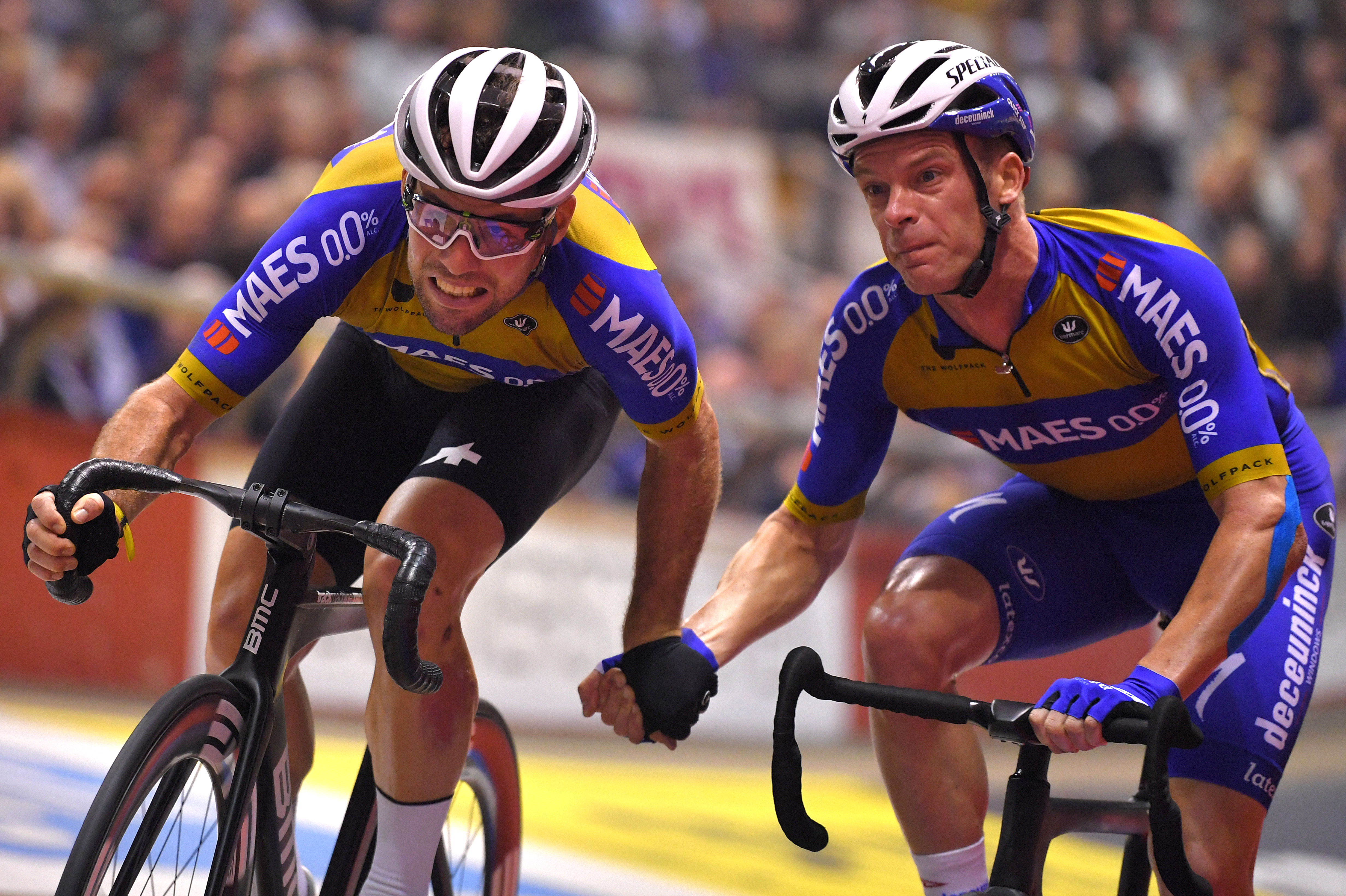Six-day events no longer have to last six days, UCI rules
Regulation update gives track racing organisers more freedom over duration


Six-day track racing events are no longer required to last six days, a new UCI rule update suggests.
Starting from 1 January 2025, it appears that six-day events will be allowed to last any duration, be that seven, three or two days.
The new regulation was approved on 27 September by the UCI, and will be put into effect next season. It comes in the form of an abrogation, or cancelling out, of a previous rule that read: “A ‘Six-Day Race’ shall last six consecutive days with at least 24 hours’ racing time.”
Instead, the UCI writes that “the organiser shall be free to set the duration and the programme of the ‘Six-Day Race’ within the limits set in the articles of this section”. The relevant section makes no stipulations about the number of days.
First started in London in the late 19th century, six-day racing has become a staple of the track calendar, with riders often competing in pairs to the backdrop of a party atmosphere. Typical races include the Madison, elimination race, and derny.
Today, among the most famous events are the Six Days of Ghent, scheduled for next week, and the Six Days of Rotterdam, which takes place in December.
According to Tony Gibb, organiser of the new London 3 Day, the rule change comes at a challenging time for track cycling, which has “fallen off a little bit” in popularity.
Get The Leadout Newsletter
The latest race content, interviews, features, reviews and expert buying guides, direct to your inbox!
“You just can’t fill the venues at the moment,” he told Cycling Weekly. “Ghent is like the Monaco of cycling for Formula 1, and they’re always going to fill it. It’s a smaller venue, so they’re great, and Rotterdam as well.
“But we can’t fill Lee Valley [Velodrome] on a Tuesday night. We couldn’t fill it on a Friday night. You’ve got to do stuff and cater for what the people want. At the moment, it’s bite-sized sport, isn’t it?”

The London 3 Day, which ran for the first time last month, sought to bring six-day racing back to the English capital, following the collapse of the London Six Day in 2019. For Gibb, it was “much more viable” to run an event over fewer days. “Our budget was probably £800,000,” he said. “If we did six days, we’d double that.”
Gibb also added that, despite the existing rule, events have had no issue gaining permission to run over fewer days in the past. The Six Days of Bremen, for example, has been held over four days for the previous two years.
“When I was riding six-days, there were 14 throughout the winter,” Gibb said. “You would finish Sunday night, spend Monday driving to the next one, and start again Tuesday night. That was the way it was. It was great. Now, you’ve got Ghent and Rotterdam, which are the only six-day races.
“You’ve got us, which is a three-day, you’ve got Bremen, which is a four-day, you’ve got Berlin, which is down to two days, you’ve got Copenhagen, which is three days.”
Cycling is no stranger to events running over incongruously named dates. On the road, the Four Days of Dunkirk counts six stages, while the historic Three Days of Brugge-De Panne is now a one-day race.
Cycling Weekly has contacted the UCI for comment about the six-day rule change.

Thank you for reading 20 articles this month* Join now for unlimited access
Enjoy your first month for just £1 / $1 / €1
*Read 5 free articles per month without a subscription

Join now for unlimited access
Try first month for just £1 / $1 / €1

Tom joined Cycling Weekly as a news and features writer in the summer of 2022, having previously contributed as a freelancer. He is fluent in French and Spanish, and holds a master's degree in International Journalism. Since 2020, he has been the host of The TT Podcast, offering race analysis and rider interviews.
An enthusiastic cyclist himself, Tom likes it most when the road goes uphill, and actively seeks out double-figure gradients on his rides. His best result is 28th in a hill-climb competition, albeit out of 40 entrants.
-
 Madison Flux short sleeve jersey review: functional and affordable
Madison Flux short sleeve jersey review: functional and affordableThe road cycling jersey delivers top performance for a budget-conscious cyclist
By Hannah Bussey
-
 I pitched a top-end all-road bike against a top-end gravel bike, here's what I found
I pitched a top-end all-road bike against a top-end gravel bike, here's what I foundMulti-surface machines go head-to-head-to-head and categories clash as Tim Russon rolls up for the ultimate do-it-all bike showdown
By Tim Russon
-
 'They thought I was dying' - Meet the 80-year-old Brit who won four world titles weeks after leaving hospital
'They thought I was dying' - Meet the 80-year-old Brit who won four world titles weeks after leaving hospitalA serious health scare couldn't keep Olympic track cyclist Geoff Cooke away from the boards
By Tom Davidson
-
 'I want to inspire young girls' - Olympic champion Emma Finucane on being a role model for the next generation
'I want to inspire young girls' - Olympic champion Emma Finucane on being a role model for the next generation22-year-old hopes to encourage new track cyclists in the run-up to the LA Olympics in 2028
By Tom Davidson
-
 I was told I'd never ride a bike again, now I hold 12 cycling world records
I was told I'd never ride a bike again, now I hold 12 cycling world recordsFormer US Olympic hopeful Ryan Collins is a master of six-hour challenges
By Tom Davidson
-
 'Just words on a piece of paper' - Matthew Richardson responds to Australia ban and sanctions
'Just words on a piece of paper' - Matthew Richardson responds to Australia ban and sanctionsTrack sprinter who switched nationality to GB hopes fallout can be 'put to bed'
By Tom Davidson
-
 Olympian Matthew Richardson banned for life by Australia
Olympian Matthew Richardson banned for life by AustraliaTrack sprinter swapped nationality following Paris Olympics, and now competes for Great Britain
By Tom Davidson
-
 90-year-old cyclist sets sights on four world records
90-year-old cyclist sets sights on four world recordsThree-time Masters world champion Walter Fowler is far from ready to slow down yet
By Tom Davidson
-
 'I will hopefully not be forgotten': How Jeffrey Hoogland broke track sprinting's oldest record
'I will hopefully not be forgotten': How Jeffrey Hoogland broke track sprinting's oldest recordLast October, Jeffrey Hoogland roared to a new kilometre time trial world record. Tom Davidson spoke to the Dutchman and his team to find out what it took
By Tom Davidson
-
 London 3 Day live stream: Watch Sunday's action on Cycling Weekly's YouTube channel
London 3 Day live stream: Watch Sunday's action on Cycling Weekly's YouTube channelWatch live as track cycling stars go head-to-head at the Lee Valley Velodrome
By Tom Davidson